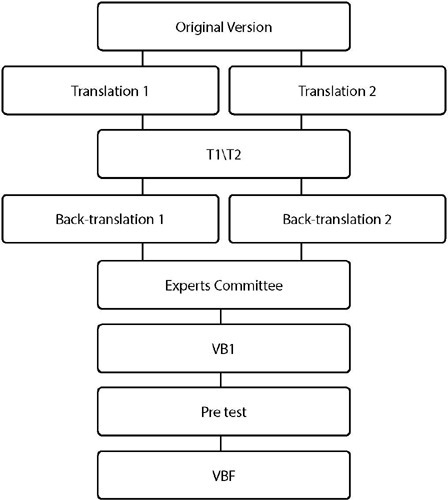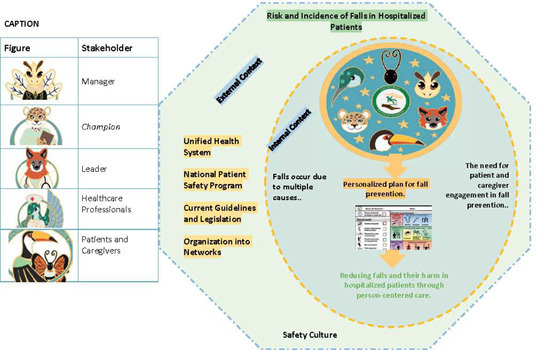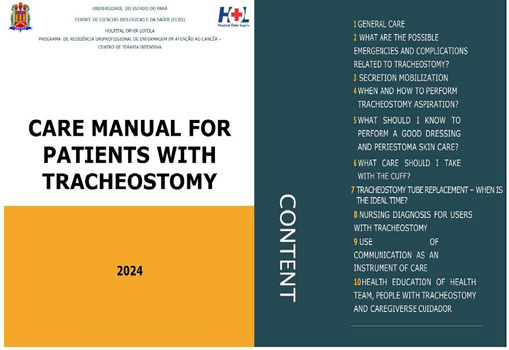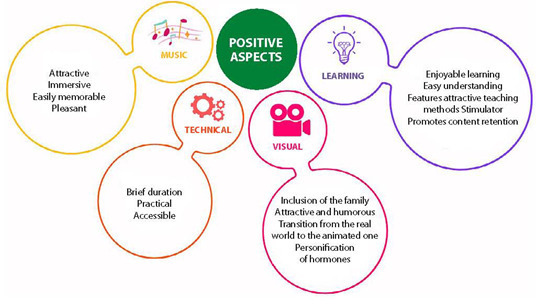-
EDITORIAL12-04-2023
A cronicidade e o seu impacto na saúde do trabalhador: uma chamada para ações concretas
Revista Brasileira de Enfermagem. 2023;76:e76suppl301
Abstract
EDITORIALA cronicidade e o seu impacto na saúde do trabalhador: uma chamada para ações concretas
Revista Brasileira de Enfermagem. 2023;76:e76suppl301
DOI 10.1590/0034-7167.202376suppl301pt
Views0A relação entre cronicidade e trabalho tem sido uma preocupação crescente na sociedade contemporânea. À medida que o número de doenças crônicas aumenta em todo o mundo, é fundamental compreender como essas condições impactam a saúde dos trabalhadores(). Neste editorial, exploraremos os impactos da cronicidade na saúde do trabalhador, destacando dados da Carga Global de […]See more -
EDITORIAL12-04-2023
Chronicity and its impact on workers’ health: a call for concrete actions
Revista Brasileira de Enfermagem. 2023;76:e76suppl301
Abstract
EDITORIALChronicity and its impact on workers’ health: a call for concrete actions
Revista Brasileira de Enfermagem. 2023;76:e76suppl301
DOI 10.1590/0034-7167.202376suppl301
Views0The relationship between chronicity and work has been a growing concern in contemporary society. As the number of chronic illnesses increases around the world, it is critical to understand how these conditions impact workers’ health(). In this editorial, we will explore the impacts of chronicity on workers’ health, highlighting data from the Global Burden of […]See more -
General Law on Personal Data Protection and applicability to Nursing
Revista Brasileira de Enfermagem. 2023;76:e20230126
Abstract
General Law on Personal Data Protection and applicability to Nursing
Revista Brasileira de Enfermagem. 2023;76:e20230126
DOI 10.1590/0034-7167-2023-0126
Views0See moreABSTRACT
Objectives:
to reflect on the impacts of the General Personal Data Protection Law on Nursing practice.
Methods:
reflection article, through the intentional collection of materials relating to the topic.
Results:
legislation regulates confidentiality, processing and data sharing, requiring institutional protection measures. The nursing team is responsible for acting preventively, both in care and in the management role, in order to avoid the misuse of the patient’s personal data. The law allows academic research to be carried out as long as the purpose is clear, data collection occurs with an explicit purpose and data is anonymized.
Final Considerations:
although the General Personal Data Protection Law requires greater care in relation to data processing, it is established on precepts of good faith and respect for the rights of the individual, concepts aligned with the nursing code of ethics.

-
REVIEW12-04-2023
Supervision of professional nursing practice in Brazil: a scoping review
Revista Brasileira de Enfermagem. 2023;76:e20230077
Abstract
REVIEWSupervision of professional nursing practice in Brazil: a scoping review
Revista Brasileira de Enfermagem. 2023;76:e20230077
DOI 10.1590/0034-7167-2023-0077
Views0See moreABSTRACT
Objectives:
to map studies that analyze the audit process of nursing councils.
Methods:
this is a scoping review, anchored in the JBI framework, with the guiding question: what is the evidence of the audit process of legal practice of nursing by class councils (COFEN/COREN system)? The searches were carried out in October and November 2022 without limitation of language and year.
Results:
of the 9 selected studies, all are Brazilian and published from 2014 onwards. Among the topics addressed are the role, challenges, costs and difficulties in nurse auditors’ daily work process, in addition to the contribution of the audit sector in Brazil.
Conclusions:
the studies gathered discuss aspects related to costs, challenges and difficulties, but there is no focus on corrective, disciplinary and educational activities as well as little is said about the audit process, its reporting, referral and outcomes.

-
ORIGINAL ARTICLE12-04-2023
Overview of nursing ethics teaching in Brazilian public higher education institutions
Revista Brasileira de Enfermagem. 2023;76:e20220808
Abstract
ORIGINAL ARTICLEOverview of nursing ethics teaching in Brazilian public higher education institutions
Revista Brasileira de Enfermagem. 2023;76:e20220808
DOI 10.1590/0034-7167-2022-0808
Views0See moreABSTRACT
Objectives:
to outline the teaching of ethics in undergraduate Nursing programs in Brazilian public higher education institutions.
Methods:
descriptive and exploratory study, carried out through the documentary analysis of pedagogical projects of undergraduate Nursing programs in Brazil.
Results:
153 active undergraduate Nursing programs were found, of which 106 provide the pedagogical project. In addition to deontological teaching, the teaching of ethics was identified in a transversal way associated with themes such as Social Context, Hospital and Community Care, Pharmacology, Systematization of Nursing Care, Surgical Nursing, Epidemiology, Palliative Care, Management in Nursing, Diversity, Women’s, Children’s, Adolescent’s, Adult’s and Older People’s Health, and Mental Health.
Final Considerations:
the challenge in teaching nursing ethics is its integration with each action of caring, teaching and managing.

-
Ethical dilemmas at the end of life: a reflection from the Philosophical Perspective of Luigina Mortari
Revista Brasileira de Enfermagem. 2023;76:e20220759
Abstract
Ethical dilemmas at the end of life: a reflection from the Philosophical Perspective of Luigina Mortari
Revista Brasileira de Enfermagem. 2023;76:e20220759
DOI 10.1590/0034-7167-2022-0759
Views0See moreABSTRACT
Objectives:
to reflect on the ethical dilemmas involved in the care of patients at the end of their lives.
Methods:
this is a theoretical-reflective study based on the ethics of care proposed by Luigina Mortari.
Results:
discussing care involves addressing the ways of being inherent to human existence and understanding the unique characteristics of this condition. Ethical care constitutes an action driven by interest in the other and by the perception of their need. Ethical dilemmas are a part of end-of-life care, making it essential to maintain respectful assistance that considers the patient’s autonomy, using strategies for expressing their wishes, and ensuring continuous clear and empathetic communication among all those involved in providing care.
Final Considerations:
issues related to being, stemming from one’s reality of dependency and vulnerability, contribute to the emergence of ethical dilemmas present in care actions.
-
ORIGINAL ARTICLE12-04-2023
Sepsis and COVID-19: outcomes in young adults in intensive care
Revista Brasileira de Enfermagem. 2023;76(6):e20230037
Abstract
ORIGINAL ARTICLESepsis and COVID-19: outcomes in young adults in intensive care
Revista Brasileira de Enfermagem. 2023;76(6):e20230037
DOI 10.1590/0034-7167-2023-0037
Views0See moreABSTRACT
Objective:
to verify sepsis incidence among young adults admitted to intensive care due to COVID-19 and to analyze its association with demographic, clinical and outcome variables.
Methods:
a quantitative, longitudinal, retrospective and analytical study, consisting of 58 adults aged 20 to 40 years in intensive care for SARS-CoV-2. It was carried out in a university hospital, from March 2020 to December 2021, with data collected from electronic medical records.
Results:
sepsis incidence was 65%. Sepsis was associated with acute kidney injury, use of vasoactive drugs and mechanical ventilation, being admitted to the emergency room, severity according to the Simplified Acute Physiology Score III and bacterial pulmonary co-infection, the latter being the most frequent etiology for sepsis.
Conclusions:
there was a high sepsis incidence, with 42% of deaths, which points to the importance of investing in preventive measures, especially in relation to bacterial pulmonary coinfections.
-
ORIGINAL ARTICLE12-04-2023
Clinical simulation scenarios for the planning and management of infusion therapy by nurses
Revista Brasileira de Enfermagem. 2023;76(6):e20230019
Abstract
ORIGINAL ARTICLEClinical simulation scenarios for the planning and management of infusion therapy by nurses
Revista Brasileira de Enfermagem. 2023;76(6):e20230019
DOI 10.1590/0034-7167-2023-0019
Views0ABSTRACT
Objective:
to build, evaluate and test two clinical simulation scenarios for the planning and management of infusion therapy by nurses.
Methods:
methodological study, with construction of scenarios based on the NLN Jeffries Simulation Theory and the theoretical model Vessel Health Preservation; evaluation of the scenario design by judges, with calculation of the Modified Kappa Coefficient (MKC); testing scenarios with the target audience. Results: scenarios built for: 1. Patient assessment and vascular device selection; and 2. Identification and management of deep vein thrombosis. In the evaluation by judges, testing of validated scenarios in relation to educational practices and simulation design, the items evaluated presented MKC values ≥ 0.74.
Conclusion:
two evidence-based scenarios related to infusion therapy were constructed, with high levels of agreement among judges regarding their design. In testing with nurses, good results were obtained regarding the design and structuring of educational practice.
Keywords:Educational MeasurementNursing EducationPatient Care PlanningSimulation TrainingVascular Access DevicesSee more -
Sleep quality of nurses who worked in coping with COVID-19: an integrative review
Revista Brasileira de Enfermagem. 2023;76(6):e20230007
Abstract
Sleep quality of nurses who worked in coping with COVID-19: an integrative review
Revista Brasileira de Enfermagem. 2023;76(6):e20230007
DOI 10.1590/0034-7167-2023-0007
Views0See moreABSTRACT
Objective:
to analyze sleep quality of nurses who worked coping with COVID-19 in scientific evidence.
Methods:
an integrative review, carried out in seven databases, including studies between December 2021 and June 2022, without language restrictions. The sample consisted of 15 primary studies.
Results:
nurses working in hospital, intensive care, outpatient care and teaching institutions constitute a vulnerable group for sleep disorders: latency, duration, efficiency and quality. The disorders identified involved insomnia at varying levels of severity: daytime dysfunction and morning sleepiness. Night work and low capacity for self-care were determinants of impaired sleep patterns.
Final considerations:
the COVID-19 pandemic contributed to greater vulnerability of nurses to changes in sleep, requiring strategies for risk management and well-being promotion.

-
ORIGINAL ARTICLE12-04-2023
Work and Mental Distress among Nurses in the Amazon Region of Brazil during the COVID-19 Pandemic
Revista Brasileira de Enfermagem. 2023;76(6):e20220792
Abstract
ORIGINAL ARTICLEWork and Mental Distress among Nurses in the Amazon Region of Brazil during the COVID-19 Pandemic
Revista Brasileira de Enfermagem. 2023;76(6):e20220792
DOI 10.1590/0034-7167-2022-0792
Views0See moreABSTRACT
Objective:
To assess the relationship between psychopathological symptoms and the social, clinical, and occupational profile of nurses in the Amazon region of Brazil during the COVID-19 pandemic.
Methods:
A descriptive cross-sectional online study was conducted in 2020 with 261 nurses. The Symptom Assessment Scale-40 was utilized.
Results:
The presence of pre-existing conditions before the pandemic was associated with psychotism (p=0.044). Experiencing constraints and/or violence at work during the pandemic was associated with somatization (p=0.025), and working hours were associated with anxiety (p=0.025). Nurses predominantly exhibited symptoms related to fear (33.7%), tension (34.5%), and a sense that something is wrong in the mind (22.6%).
Conclusions:
A significant association was observed between working hours and anxiety symptoms, the experience of constraints and/or violence at work during the COVID-19 pandemic and somatization symptoms, as well as between pre-existing conditions and psychotism symptoms related to COVID-19.
-
ORIGINAL ARTICLE12-04-2023
Sexual behavior according to undergraduate students: perspective of cross-cultural nursing and intersectional framing
Revista Brasileira de Enfermagem. 2023;76(6):e20220786
Abstract
ORIGINAL ARTICLESexual behavior according to undergraduate students: perspective of cross-cultural nursing and intersectional framing
Revista Brasileira de Enfermagem. 2023;76(6):e20220786
DOI 10.1590/0034-7167-2022-0786
Views0ABSTRACT
Objective:
to discuss undergraduate students’ sexual behavior from the perspective of social markers and cross-cultural care proposed by Madeleine Leininger.
Methods:
descriptive-exploratory qualitative research, with a theoretical-philosophical foundation in the Transcultural Theory. Convenience sample was composed of 57 young people from two universities in Rio de Janeiro. The focus groups’ content were analyzed lexically using the IRAMUTEQ software.
Results:
four classes emerged: Young people’s sexual scripts: between the fear of an unplanned pregnancy and the risk of exposure to sexually transmitted infections; Affective relationships: trust in steady sexual partners, apparent sense of security and disuse of condoms; Sexual practices, gender and cultural determinants: distinction in men’s and women’s role; Sexual partnerships, negotiation of condom use and vulnerability to sexually transmitted infections.
Final considerations:
challenges are perceived for the attention to undergraduate students’ sexual health, who verbalized risky sexual behaviors due to sociocultural vulnerabilities.
Keywords:Cross-Cultural NursingIntersectional FramingSexual BehaviorSexually Transmitted InfectionsYoung AdultSee more
-
ORIGINAL ARTICLE12-04-2023
Hospital discharge planning in care transition of patients with chronic noncommunicable diseases
Revista Brasileira de Enfermagem. 2023;76(6):e20220772
Abstract
ORIGINAL ARTICLEHospital discharge planning in care transition of patients with chronic noncommunicable diseases
Revista Brasileira de Enfermagem. 2023;76(6):e20220772
DOI 10.1590/0034-7167-2022-0772
Views0ABSTRACT
Objective:
to analyze care transition in hospital discharge planning for patients with chronic noncommunicable diseases.
Method:
a qualitative study, based on the Care Transitions Intervention theoretical model, with four pillars of intervention, to ensure a safe transition. Twelve professionals participated in a public hospital in the countryside of São Paulo. Data were collected through observation, document analysis and semi-structured interviews.
Results:
there was a commitment of a multidisciplinary team to comprehensive care and involvement of family members in patient care. The documents facilitated communication between professionals and/or levels of care. However, the lack of time to prepare for discharge can lead to fragmented care, impairing communication and jeopardizing a safe transition.
Final considerations:
they were shown to be important elements in discharge planning composition, aiming to ensure a safe care transition, team participation with nurses as main actors, early discharge planning and family involvement.
Keywords:Continuity of Patient CareNurse's RolePatient DischargePatient-Centered CareProcess AssessmentTransitional CareSee more -
ORIGINAL ARTICLE12-04-2023
Psychometric Properties of an Instrument for Assessing University Administrators’ Knowledge on Gender-Based Violence
Revista Brasileira de Enfermagem. 2023;76(6):e20220770
Abstract
ORIGINAL ARTICLEPsychometric Properties of an Instrument for Assessing University Administrators’ Knowledge on Gender-Based Violence
Revista Brasileira de Enfermagem. 2023;76(6):e20220770
DOI 10.1590/0034-7167-2022-0770
Views0ABSTRACT
Objective:
To evaluate the factorial structure of the instrument measuring university administrators’ knowledge of gender-based violence.
Methods:
This cross-sectional methodological study was conducted from August to November 2020 with 101 university administrators. Data on demographic and functional characteristics were collected, and the “QUEST VBG UNIV” instrument was applied. Descriptive analysis was performed, the structure of the questionnaire was assessed using exploratory factor analysis (EFA), and the stability of the factors was verified through ORION and FDI tests.
Results:
Of the original 38 items across the 4 sections of the questionnaire, 19 were retained within 2 factors, with appropriate factor loadings. Factor 1 had an explained variance of 15.69%, and Factor 2 had an explained variance of 9.10%. The reliability was deemed satisfactory (ORION > 0.900, FDI > 0.900).
Conclusions:
The questionnaire presented a valid and reliable factorial structure for measuring knowledge about gender-based violence, thereby representing a suitable option for situational assessments in universities.
Keywords:Factor AnalysisGender-Based ViolencePsychometricsStatisticalValidation StudyWorkplace violenceSee more
-
ORIGINAL ARTICLE06-14-2024
Duração e qualidade do sono da equipe de enfermagem brasileira que trabalha em turnos
Revista Brasileira de Enfermagem. 2024;77(2):e20230167
Abstract
ORIGINAL ARTICLEDuração e qualidade do sono da equipe de enfermagem brasileira que trabalha em turnos
Revista Brasileira de Enfermagem. 2024;77(2):e20230167
DOI 10.1590/0034-7167-2023-0167
Views0See moreRESUMEN
Objetivo:
analizar la duración y calidad del sueño en profesionales de enfermería que trabajan por turnos.
Método:
investigación analítica, transversal, realizada entre septiembre de 2017 y abril de 2018, en un hospital público del sur de Brasil, con el equipo de enfermería. Se utilizó el cuestionario sociolaboral y de síntomas de salud, la Escala de Somnolencia de Epworth y el Índice de Calidad del Sueño de Pittsburgh. Los datos se presentan como estadística descriptiva e inferencial, análisis bivariado y regresión logística binaria.
Resultados:
participaron 308 profesionales de enfermería, con predominio de sueño prolongado, ausencia de somnolencia y mala calidad del sueño. La duración corta del sueño (<6 h) se asoció con turnos de día y mala calidad del sueño. La calidad del sueño se asoció con la presencia de somnolencia diurna excesiva y con el trabajo diurno.
Conclusión:
los turnos de trabajo, el insomnio y la cefalea fueron los principales factores relacionados con la falta de sueño de los profesionales de enfermería. Los resultados pueden justificar el desarrollo de investigaciones de intervención para la salud de los trabajadores.
-
ORIGINAL ARTICLE06-14-2024
Sleep duration and quality of Brazilian nursing staff who work in shifts
Revista Brasileira de Enfermagem. 2024;77(2):e20230167
Abstract
ORIGINAL ARTICLESleep duration and quality of Brazilian nursing staff who work in shifts
Revista Brasileira de Enfermagem. 2024;77(2):e20230167
DOI 10.1590/0034-7167-2023-0167
Views0See moreABSTRACT
Objective:
to analyze sleep duration and sleep quality in nursing professionals who work in shifts.
Method:
this is a cross-sectional, analytical research, carried out between September 2017 and April 2018, at a public hospital in southern Brazil, with the nursing team. A socio-occupational and health symptoms questionnaire, the Epworth Sleepiness Scale, and the Pittsburgh Sleep Quality Index were used. Data are presented as descriptive and inferential statistics, bivariate analysis, and binary logistic regression.
Results:
participants were 308 nursing professionals with a predominance of long-term sleep, absence of drowsiness, and poor sleep quality. Short-term sleep (<6h) was associated with day shift and poor sleep quality. Sleep quality was associated with presence excessive daytime sleepiness and work day shift.
Conclusion:
work shift, insomnia and headache were the main factors related short-term sleep for nursing professionals. The results may justify the development of intervention research for workers’ health.
-
ORIGINAL ARTICLE06-14-2024
Translation and Cross-Cultural Adaptation of the LYMPH-ICF Instrument for Lymphedema into Portuguese/Brazil
Revista Brasileira de Enfermagem. 2024;77(2):e20230137
Abstract
ORIGINAL ARTICLETranslation and Cross-Cultural Adaptation of the LYMPH-ICF Instrument for Lymphedema into Portuguese/Brazil
Revista Brasileira de Enfermagem. 2024;77(2):e20230137
DOI 10.1590/0034-7167-2023-0137
Views0ABSTRACT
Objective:
The aim of this study is to cross-culturally adapt the Lymphoedema Functioning, Disability and Health Questionnaire Lymphoedema (LYMPH-ICF) instrument into Brazilian Portuguese and conduct a pilot application (n = 10), without psychometric pretensions.
Method:
Methodological research was conducted, following the steps of translation, synthesis, back-translation, and evaluation by the expert committee. Two translators, two back-translators, and twelve professionals participated in the expert committee. A pretest was carried out with 10 patients with secondary lymphedema due to breast cancer. The degree of agreement was determined by the content validity coefficient.
Results:
It was necessary to modify 8 out of the 29 questions comprising the questionnaire, which exhibited idiomatic disagreement. However, despite these changes, there were no indications of impairments, as content reliability was achieved through a validity coefficient of 0.90.
Final Considerations:
The instrument was successfully translated and cross-culturally adapted for Brazil with a high level of agreement.
Keywords:Breast NeoplasmsHealth CareInternational Classification of Functioning, Disabiliy and HealthLymphedemaPatient Health QuestionnaireSee more
-
ORIGINAL ARTICLE05-27-2024
Fall Tailoring Interventions for Patient Safety Brazil Program: an evaluability study in a teaching hospital
Revista Brasileira de Enfermagem. 2024;77(2):e20230348
Abstract
ORIGINAL ARTICLEFall Tailoring Interventions for Patient Safety Brazil Program: an evaluability study in a teaching hospital
Revista Brasileira de Enfermagem. 2024;77(2):e20230348
DOI 10.1590/0034-7167-2023-0348
Views0See moreABSTRACT
Objectives:
to present the theoretical model, logic model, and the analysis and judgment matrix of the Fall TIPS Brazil Program.
Methods:
a qualitative, participatory research approach, in the form of an evaluability study, encompassing the phases (1) problem analysis; (2) program design, development, and adaptation to the Brazilian context; (3) program dissemination. Data were collected through document analysis and workshops.
Results:
through document analysis, workshops with stakeholders from the participating institution, and validation with key informants, it was possible to identify the program’s objectives, expected outcomes, and the target audience. This allowed the construction of theoretical and logic models and, through evaluative questions, the identification of indicators for the evaluation of the Fall TIPS Brazil Program.
Final Considerations:
this study has provided insights into the Fall TIPS program, the topic of hospital fall prevention, and the proposed models and indicators can be employed in the implementation and future evaluative processes of the program.

-
ORIGINAL ARTICLE05-27-2024
Nursing care protocol for critical users with tracheostomy under mechanical ventilation
Revista Brasileira de Enfermagem. 2024;77(2):e20230337
Abstract
ORIGINAL ARTICLENursing care protocol for critical users with tracheostomy under mechanical ventilation
Revista Brasileira de Enfermagem. 2024;77(2):e20230337
DOI 10.1590/0034-7167-2023-0337
Views0See moreABSTRACT
Objectives:
to develop and assess a nursing care protocol for critically ill users with tracheostomy under mechanical ventilation.
Methods:
a methodological study, developed through two phases, guided by the 5W2H management tool: I) target audience characterization and II) technology development.
Results:
thirty-four nursing professionals participated in this study, who presented educational demands in relation to care for critical users with tracheostomy, with an emphasis on standardizing care through a protocol and carrying out continuing education.
Final Considerations:
the creation and validity of new technologies aimed at this purpose enhanced the participation of nursing professionals and their empowerment in the health institution’s microsectoral actions and in macrosectoral actions, highlighting the need for public policies that guarantee the conduct of a line of care for users with tracheostomy.

-
ORIGINAL ARTICLE05-27-2024
Assessment of educational technology in lactation physiology by health students
Revista Brasileira de Enfermagem. 2024;77(2):e20230252
Abstract
ORIGINAL ARTICLEAssessment of educational technology in lactation physiology by health students
Revista Brasileira de Enfermagem. 2024;77(2):e20230252
DOI 10.1590/0034-7167-2023-0252
Views0ABSTRACT
Objectives:
to assess the suitability, facilitators, and barriers of using a video clip for teaching lactation physiology to health students.
Methods:
a cross-sectional study was conducted with online data collection at a higher education institution, using the Assistive Technology Assessment Instrument and open-ended questions. The sample consisted of 88 students.
Results:
the video clip was deemed suitable in all attributes. Facilitators identified included attractiveness, musicality, and ease of access. Barriers noted were the music’s speed and the necessity for prior knowledge. The video clip achieved adequate scores for interactivity (1.71), purpose (1.77), relevance (1.64), and clarity (1.77). The overall average of the attributes was 1.72.
Conclusions:
the video clip can serve as an effective learning strategy to enhance hybrid education, potentially contributing to the promotion and support of breastfeeding. However, some barriers underscore the importance of prior knowledge for a complete understanding of the content.
Keywords:Biomedical Technology AssessmentEducational TechnologyHealth Sciences StudentsNursingTranslational Biomedical SciencesSee more
-
ORIGINAL ARTICLE05-27-2024
Technology for nursing care in a Maternal Intensive Care Unit: a methodological study
Revista Brasileira de Enfermagem. 2024;77(2):e20230202
Abstract
ORIGINAL ARTICLETechnology for nursing care in a Maternal Intensive Care Unit: a methodological study
Revista Brasileira de Enfermagem. 2024;77(2):e20230202
DOI 10.1590/0034-7167-2023-0202
Views0See moreABSTRACT
Objectives:
to develop and validate a nursing care plan in a Maternal Intensive Care Unit.
Methods:
a methodological study, developed in stages: integrative review; Nursing History construction; care plan restructuring; appearance and content validity by judges.
Results:
the history was organized into sections: Identification; Basic Human Needs; Physical Examination; and Assessment of Basic Human Needs. A care plan was restructured with 34 diagnoses, organized according to basic human needs. A satisfactory level of appearance validity of the history and care plan was obtained (Concordance Index varying between 86.3 and 100 for both instruments), and content validity with average indexes of 90.8 and 92.8, respectively. Thirty-four diagnoses, their interventions and nursing actions were consolidated.
Conclusions:
the instruments were considered relevant and pertinent in terms of appearance and content, and their use in the institution under study as well as in other similar services may be recommended.
-
EDITORIAL05-13-2024
Metodologia qualitativa: considerações e singularidades sobre a implementação de intervenções centradas na pessoa
Revista Brasileira de Enfermagem. 2024;77(3):e770301
Abstract
EDITORIALMetodologia qualitativa: considerações e singularidades sobre a implementação de intervenções centradas na pessoa
Revista Brasileira de Enfermagem. 2024;77(3):e770301
DOI 10.1590/0034-7167.2024770301pt
Views0A investigação qualitativa em saúde permite a compreensão aprofundada de como a pessoa experiencia as diferentes transições de saúde, a relação com os profissionais de saúde e a passagem pelos diferentes ambientes de prática clínica. Concomitantemente, tem o potencial de suportar a tomada de decisão clínica dos profissionais e de empoderar o cidadão na sua […]See more
Search
Search in:
Nuvem de Tags
Aged (144) Atenção Primária à Saúde (239) COVID-19 (104) Cuidados de Enfermagem (269) Educação em Enfermagem (151) Educação em Saúde (139) Enfermagem (930) Estudos de Validação (131) Health Education (144) Idoso (208) Mental Health (149) Nursing (987) Nursing Care (306) Patient Safety (151) Primary Health Care (284) Qualidade de Vida (104) Quality of Life (106) Saúde Mental (145) Segurança do Paciente (150) Validation Studies (108)




